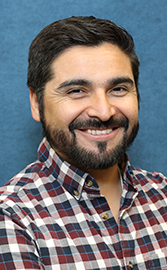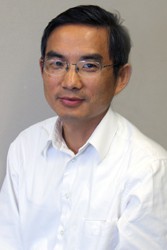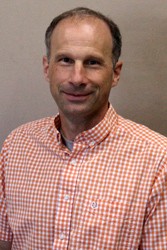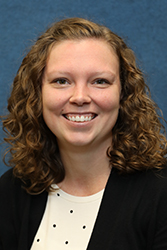The pedology research program emphasis encompasses a wide area of activities statewide and international. Many of these activities are done in cooperation with colleagues at other institutions or in-country collaborators.
Research Interests

Pedology and Biogeochemistry Emphasis
- Land use change and use intensification effects on soil functional properties.
- Pedogenesis, mineral weathering, and enhanced weathering for carbon capture
- Multi-elemental cycling in natural ecosystems and agroecosystems
- Diffuse reflectance IR spectroscopy to characterize soil properties.
- Ant bioturbation effects on pedogenesis and soil functionality
Soil Physics
- influence of soil moisture on various components of the hydrological cycle and soil health
- Vegetation and land use effects on soil properties and water dynamics
- Large-scale soil moisture monitoring with in situ and remote sensing for quantifying and predicting evapotranspiration (ET), soil water storage, and deep drainage.
Mineralogy
- Martian soil clay mineralogy
- Microbial toxins bonding and sorption on clay minerals (e.g. Aflatoxin, pyocyanin, etc.)
- Mineral transformation during contaminated soil reclamation and recovery
- Developing advanced spectroscopic and microscopic methods and molecular modeling for soil/clay mineralogy studies
Facilities
Dr. Aburto’s Pedology and Soil Biogeochemistry Lab
For more information, visit Dr. Felipe Aburto’s lab site.
- Rigaku ZSX Primus IV Sequential Wavelength Dispersive X-Ray Fluorescence Spectrometer
- Waters Discovery SDT 650 Differential Scanning Calorimeter – Thermogravimetry
- Thermo Nicolet iS50 Fourier Transform Infra-Red Analyzer (FTIR)
- Shimadzu Liquid Total Organic Carbon and Nitrogen Analyzer
- Thermo Dionex Aquion Iron Chromatography System
- Smartchem Wet chemistry analyzer
- ASD Labspec 5000 Field near infrared spectrometer
- Honner Pressure Calcimeter
- Spex Sample Prep Shatter Box 8530 Ring and Pluck Mill with three large hardened stainless steel or one extra-large zirconia grinding elements.
- Other common lab equipment (refrigerated ultra-centrifuge, UV-VIS spectrometer, pH meter, analytical balances, incubators, ovens, ROS water system, etc.)
In addition, Dr. Aburto’s lab has a variety of field equipment to support field and pedological research, including:
- Field Probe truck (Ford F350 + Giddings probe)
- Saturo Infiltrometer Meter Group
- Retego® – TTR Chemical Water Analyzer
- YSI52 Dissolved oxygen analyzer
- Eijkelkamp Mini Rainfall Simulator
- PP Systems IRGA CO2/H2O/O2 Soil Gas Analyzer
- Complete variety of digging, auger, coring devices, and complementary digging tools
Dr. Deng’s Soil Mineralogy Lab
Dr. Youjun Deng’s Soil Clay Mineralogy group is structured for natural, modified, and synthetic soil and geological materials including clays, clay minerals, colloids, and nanoparticles.
- Bruker D8 ADVANCE X-ray diffractometer
- PerkinElmer Spectrum 100 Series FT-IR spectrometer
- Custom-made spray dryer to make randomly oriented specimens for quantitative XRD analysis.
- Custom-made auto-size fractionator to extract colloids and nanoparticles.
- Micronizer for milling samples to uniform particle size for quantitative XRD analysis.
- Laser diffraction particle size analyzer
- Other common lab equipment (Centrifuge, UV-VIS spectrometer, pH meter, analytical balances, furnace, ovens, etc.
In addition, Dr. Deng’s is a certified (full access) user for the following instruments at MIC and MCF on the Texas A&M campus:
- High-resolution transmission electron microscope FEI TECNAI G2 F20 ST FE-TEM
- High-resolution transmission electron microscope JOEL 2010
- Field emission electron microscope FEI Quanta 600 FE-SEM Atomic force microscope
- Raman spectrometer/Confocal microscope Horiba Jobin-Yvon LabRam IR system
- Spectrofluorometer PTI QuantaMaster series spectrofluorometer
Dr. Wyatt’s Soil Physics Lab
- Permeameter for saturated hydraulic conductivity (Ksat) (Eijkelkamp, The Netherlands)
- Hydrometers for particle size analysis
- Tempe cells for water retention (wet end) (Soil Moisture, USA)
- Pressure chambers for water retention (dry end) (Soil Moisture, USA)
- Minidisk infiltrometers for field unsaturated hydraulic conductivity (K) (Meter Group, USA)
- Wet aggregate stability machine (Eijkelkamp, The Netherlands)
Dr. Wyatt’s lab managed an array of various field soil moisture and temperature sensors and weather stations distributed both locally and across the state.
Faculty and Staff
Felipe Aburto Guerrero
Associate Professor
Pedology and Soil BiogeochemistryBriana Wyatt
Associate Professor
Soil Physics & Hydrology
Related Sites of Interest
- Texas AgriLife Research
- Texas Soil Characterization Database
- Pedology and Soil Biogeochemistry Laboratory
Learn More About Research Areas of Focus in Soil and Crop Sciences
In the realm of soil and crop sciences, research focuses on a myriad of critical areas that drive sustainable agricultural practices and global food security. Soil health and management take center stage, exploring ways to optimize soil fertility, structure, and nutrient cycling to enhance crop productivity. Genetic advancements in crop breeding and biotechnology are pursued to develop resilient varieties that withstand environmental stressors and ensure high yields. Precision agriculture, integrating technology and data analytics, aims to fine-tune farming practices, reducing resource waste and maximizing efficiency. The exploration of sustainable agroecosystems delves into the intricate relationships between crops, soil, and the environment, fostering environmentally friendly approaches. Such research not only informs farming practices but also contributes to vital policy discussions, shaping the future of agriculture in a rapidly changing world.



